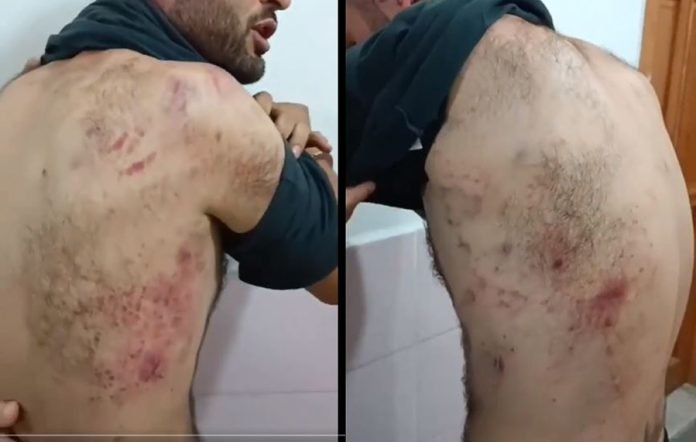A Kurdish farmer in southeast Turkey’s Mus province on Monday was allegedly severely beaten by soldiers in a detention center.
The incident was reported by Sinan Aygül, a human rights advocate and the chairman of a journalists’ association.
Muhammed Erol, 32, was detained on Monday evening on charges of planting narcotic plants. Images circulating on social media show his badly bruised body, and a video recording shows Erol barely able to walk.
The video shows Erol was supported by relatives as he left the prosecutor’s office. The young man claimed he was beaten by soldiers while in detention and said he would file a complaint against the perpetrators.
“I hope the authorities take action against the perpetrators,” Aygül tweeted on X, formerly known as Twitter.“This is nothing short of torture, and torture is a crime against humanity.”
Erol’s lawyer, Tarık Güneş, said he took his client to the hospital to obtain a report that confirmed his injuries.
Turkey has experienced a marked resurgence of torture and ill-treatment in custody since a coup attempt on July 15, 2016. Lack of condemnation from higher officials and a readiness to cover up allegations rather than investigate them have resulted in widespread impunity for the security forces.
An annual report on human rights violations in Turkey drafted by main opposition Republican People’s Party (CHP) lawmaker Sezgin Tanrıkulu revealed 5,361 incidents of torture or maltreatment in 2022. According to the report, 80 minors were among the 5,381 people who were subjected to mistreatment in Turkey last year, including 1,280 incidents of torture or maltreatment taking place behind bars.
The US State Department, which issued its 2022 Country Reports on Human Rights Practices with a subsection on Turkey last month, listed credible reports of suspicious deaths of persons in custody, among other rights violations in the country.
The report addressed the issue of torture and other cruel, inhuman or degrading treatment, citing domestic and international rights groups who “reported that some police officers, prison authorities, and military and intelligence units employed these practices.”















